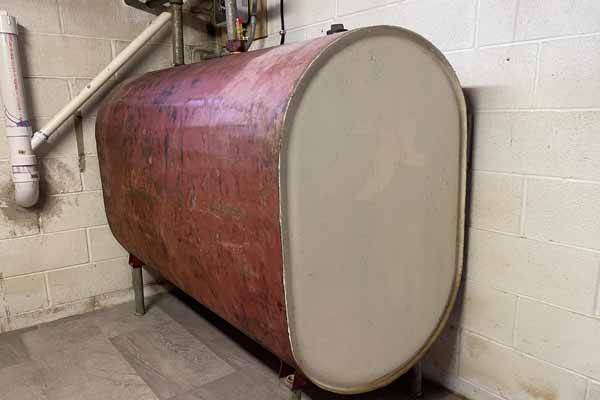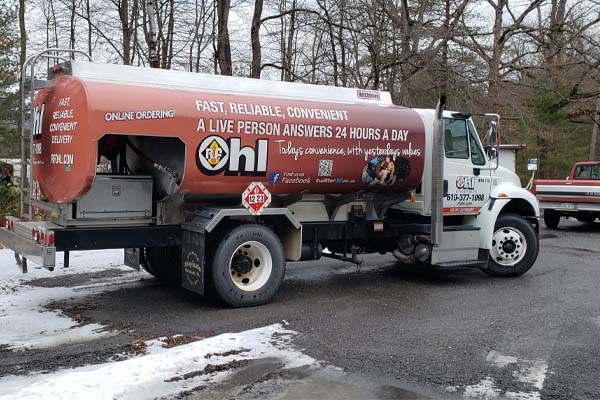Helpful Tips On Preventing Heating Oil Tank Sludge

Heating oil is stored in residential fuel tanks, ready to be used for space and water heating in your home. The fuel may last several months, depending on the tank’s capacity and the household’s usage rate. It ensures that your home remains comfortable even through cold weather. You can prevent common tank issues like heating oil tank sludge by ensuring your fuel oil tank is in good condition.
Sludge is a thick substance that grows as time passes, creating problems for homeowners. It cannot be avoided completely, but you can ensure it takes a long time to develop. This will help your oil tank to last as expected. Keep reading to learn all you can about oil tank sludge, including how it is formed and how to prevent it from occurring.
How Does Sludge Form In A Heating Oil Tank?
The development of oil tank sludge is a gradual process that needs certain conditions to occur. You can avoid sludge when you understand the factors that contribute to sludge formation. This article discusses the raw materials, known causes, linked issues, and preventive measures.
Related Article: What Is A Double-Wall Heating Oil Tank?
What is Heating Oil Tank Sludge?

Heating oil isn’t the only thing in your tank, as it also has debris, moisture, and rust. Microorganisms also grow in damp and dark environments. All these fall to the tank’s base, where they mix together and create thick sludge. The risk of formation is more likely in nearly empty containers wherein leftover fuel remains for prolonged periods. For instance, homeowners tend to ignore their tanks after winter and only remember when the temperatures drop again. Fuel delivery personnel may see sludge as they try to refill your tank.
What Causes Tank Sludge?
Tanks are equipped with a vent pipe where air flows in and out. Air is released during deliveries as oil fills the tank. You will hear a whistle as this occurs. Consuming oil means the fuel moves into the furnace or boiler, allowing air to enter. The system ensures the pressure equilibrium in the tank is maintained. However, cold, moist air can condense in the tank’s interior walls. This causes rust to develop eventually, and its flakes fall on the tank’s base. Leftover fuel reacts to the water, heat, air, light, rust, and other elements in the tank. Bacteria can feed on these materials and form sludge over time.
Related Article: 10 Ways to Save Money on Heating Oil Costs
Problems Associated with Tank Sludge

Here are several issues that stem from oil tank sludge:
Reduced Energy Efficiency
Preventing oil tank sludge from forming needs effort. It is a necessary task so that your heating system runs optimally. Neglecting this problem will only worsen it. Keep in mind that sludge is thick and sticky, so it can clog the supply line and oil filter. As a result, the heating system may not get the necessary fuel to function. Oil may still pass through a clogged filter, but this significantly reduces the system’s energy efficiency. This means you will have to pay more for home heating.
Heating System Breakdown
Neglecting sludge formation may mean your HVAC equipment has to work harder. It may not be an emergency, but it may cause your system to shut down. Sludge can get to sensitive components and damage them, causing your boiler or system to become unresponsive. You may have to pay for major HVAC repairs for your system to work again. Some oil tanks may need to be replaced because of sediments and leaks. Consider a tank replacement if your current one is full of rust, as the weak walls can cause problems.
Related Article: What Size Oil Tank Do I Need?
How to Prevent Heating Oil Tank Sludge
Preventing problems is always better than repairing them. Therefore, do all you can to prevent sludge from forming. Here are several strategies to help ensure your tank remains clean and clog-free:
Schedule Regular Heating Oil Deliveries

Sludge tends to form when there is a low fuel level. More air enters the tank to fill the void, and the water vapor inevitably condenses on its walls. Book an oil delivery before this occurs. Don’t wait for your tank to be nearly empty before scheduling a delivery, as it only increases the chances of your fuel line clogging. This can cut your heat supply without warning, leaving your home in the cold. Contact your local oil provider ahead of time to ensure a timely delivery.
Related Article: What Do Heating Oil Additives Do?
Use Heating Oil Additives
Chemical additives can keep sludge from forming in your heating oil tank. Pour it into the tank before the next delivery. This way, the sludge at the bottom breaks down, making cleaning easier. Ensure that the additive has a dispersant compound. You can find many options online. Other features to look for are water removal, a wax stopper, and algae prevention. These additives break down the particles into smaller ones so they can easily pass through lines and filters. Do this once every heating season so the system stays sludge-free. Keep in mind that some heating oil companies include additives in their heating oil to keep sludge from forming. Ask your supplier if they do this before pouring additives into your tank.
Give Your Heating Oil Tank Some Attention
Replace your oil filters. You should also book a professional tank checkup. Technicians will search for sludge deposits and clogs and resolve them before they cause problems.
Use High-Quality Home Fuel Oil
Some people may think that heating oil is a commodity that is the same regardless of where they buy it. However, premium quality oils are available, and these contain fewer contaminants that can turn into sludge. Select these products to get better results. Look for a reputable heating oil provider near you. Ask neighbors which company is the best when it comes to clean fuel delivery and sludge assistance. Professional assistance will help keep your stress low and your hands clean. They can also guide you on what preventive measures you can take.
Related Article: How Does Oil Heating System Work?
Keep the Heating Oil Tank Full
Most homeowners only refill their tanks during the cold months while letting them stay nearly empty during summer and spring. This means that most of the tank’s volume is filled with humid air. This is the perfect condition for rust formation and sludge accumulation. Consider keeping your tank full even when your heating system doesn’t need to be switched on. This way, air and water vapor are kept out, and bacterial growth and rust are prevented.
Conclusion
The interior of a static oil tank is dynamic. Fuel and air constantly flow in and out of it. Water vapor condenses on the interior walls, causing it to corrode while feeding bacteria. Keep your tank clean and full to prevent sludge formation. Utilize premium oil from reputable companies and have a professional assist you with advanced maintenance tasks.
Related Article: Can I Put Diesel Fuel in My Home Heating Oil Tank?
Contact R.F. Ohl For Reliable Discount Oil Deliveries

For reliable and affordably-priced heating oil, call R.F. Ohl. You can count on our high-quality, discount heating oil deliveries to be fast and friendly. We also offer efficient heating solutions for your family and home.
The expert technicians on our team are equipped to handle any HVAC repair or maintenance. Contact us to hear about our various services. We can assist by answering your questions and concerns. For more information about our efficient HVAC services or oil deliveries, call R.F. Ohl today!
Call us today to learn more. Click here to contact us or call us at (610) 377-1098 to contact us today! Click the link to view our service area.
Posted in Heating Oil • Tags:
